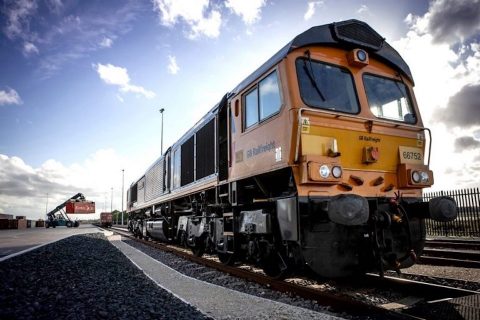Only the EU can ensure the success of Ukrainian grain exports

While proposals, some feasible, others not, for Ukrainian grain export alternatives fall like rain, the EU seems the only one able to provide a successful solution to the challenge. “Exporting Ukrainian grain via the Baltics is possible only if the European Commission undertakes coordination,” stated the Latvian Transport Minister, Janis Vitenbergs.
It has been analysed before that the Baltic route can prove a successful solution for exporting Ukrainian grain volumes. The know-how is there, the distance is not so long, and there’s enough port capacity in the Baltics. It could be more costly than directly exporting grain via sea or transiting via rail through Moldova and Romania, but simultaneously, it could also be quicker.
Other proposals like a shared Bulgarian-Greek rail-sea route or transit via Croatia and exports through its Adriatic and Danube ports are proving inefficient and way more expensive. After all, Ukraine requires immediate solutions, and so does the logistics industry.
The EU should come to the rescue
Whether this would happen or not and in what form is still unknown. However, it is a fact that all parties involved in Ukrainian exports, especially Ukraine, are asking the EU to intervene and help. Poland and other countries neighbouring Ukraine are asking for their agricultural sectors to be protected and not exposed to unfair competition. Ukraine has been asking the EU to provide financial aid for the increased export costs via rail. At the same time, Vitenbergs said in a meeting with the Ukrainian Ambassador in Latvia that the EU should come to the rescue and assist the project financially but also by means of coordination.
Apart from the increased transport costs, the main issue for Ukrainian exporters is the situation with its neighbouring countries. Poland, Hungary and other neighbours have vetoed the import of Ukrainian grain, despite Ukrainian officials declaring that they only need to secure transit opportunities and nothing else. Consequently, the EU must intervene again and coordinate Member and non-Member states to achieve the best possible result.
What will Brussels make of the situation, and what could be the next steps? On the one hand, policymakers will need to think of a sustainable financing solution to facilitate the work of Ukrainian exporters without damaging European companies financially. On the other hand, they should develop a coordination plan that provides immediate transport solutions while keeping the balance between all parties involved by avoiding discrimination. The challenge is immense, and the EU will need to make some drastic decisions that will not make everyone happy.




